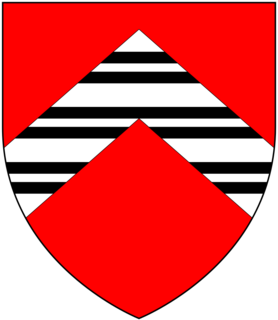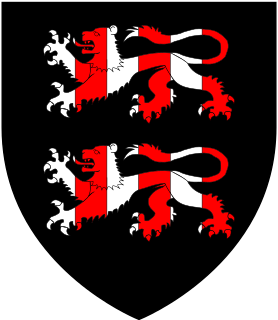Throckmorton may refer to:
John Talbot may refer to:

Sir John Throckmorton was a lawyer and member of the English Parliament during the reign of Queen Mary I. He was also a witness to Queen Mary's will.
Duckett is a surname. Notable people with the surname include:
Thomas Russell may refer to:

There have been two baronetcies created for different branches of the Throckmorton family, 6th cousins, both descended from Sir John Throckmorton, Under-Treasurer of England temp. King Henry VI (1422–1461). Both titles, which were in the Baronetage of England, are now extinct. The Throckmortons, originally of Throckmorton near Pershore, Worcestershire, trace their history back to the 12th century. In 1409 Sir John de Throckmorton, Under-Treasurer of England, married Eleanor Spinney, daughter and heiress of Guy Spinney of Coughton, Warwickshire, where the senior branch of the family, which bore the junior baronetcy, became established. The Coughton estate included in 1968 a dower house named "Spiney House, Coughton", named after that family. The senior Throckmorton Baronetcy, of Tortworth in the County of Gloucester, was created in the Baronetage of England on 29 June 1611 for William Throckmorton, of Coss Court, Tortworth, Gloucestershire, sixth in descent from John Throckmorton, younger son of Sir John Throckmorton, Under-Treasurer of England. The third Baronet sat as Member of Parliament for Gloucestershire and Wotton Basset. The title became extinct on the death of the fourth Baronet in a duel in 1682.

John Lyttelton MP JP was an English politician and member of the Lyttelton family who served as Member of Parliament for Worcestershire during the reign of Queen Elizabeth I.
William Bromley may refer to:

Sir George Throckmorton of Coughton Court in Warwickshire, England, was a Member of Parliament during the reign of King Henry VIII.

Sir Edward Seymour, 2nd Baronet was an English landowner and politician who sat in the House of Commons between 1601 and 1625. He was an ambassador to Denmark. During the English Civil War, he supported the Royalist cause.

Sir Robert Throckmorton, KG, of Coughton Court in Warwickshire, was a Member of Parliament and a distinguished English courtier. His public career was impeded by remaining a Roman Catholic.

Sir John Strangways of Melbury House, Melbury Sampford, Somerset, and of Abbotsbury in Dorset, was an English politician who sat in the House of Commons variously between 1614 and 1666. He supported the Royalist side in the English Civil War.
John Lyttelton may refer to:

Sir Richard Berkeley of Stoke Gifford, Gloucestershire was MP for Gloucestershire in 1604. He had previously served as Sheriff of Gloucestershire in 1564, and as Deputy Lieutenant of Gloucestershire. He was knighted by Queen Elizabeth I in 1568. In 1595 he was appointed Lieutenant of the Tower of London. In 1599 he was appointed custodian of Robert Devereux, 2nd Earl of Essex, who was kept under house arrest at Essex House in London. He died in 1604, whilst serving as MP, and was buried in The Gaunts Chapel, Bristol, where exists an effigy of him, which chapel had been founded in 1220 by Maurice de Gaunt, a member of the Berkeley family.
Sir Thomas Biggs was an English politician who sat in the House of Commons from 1604.

Sir Henry Bromley was an English landowner and politician who sat in the House of Commons at various times between 1584 and 1604. He was twice imprisoned for his political activities, the second and most serious occasion in the aftermath of the Essex Rebellion. Restored to favour in the Jacobean period, he was vigorous in suppressing the Gunpowder Plot.
John Throckmorton (1572–1623) was an English politician who sat in the House of Commons at various times between 1601 and 1611.
Sir Nicholas Throckmorton or Carew was an English landowner and politician who sat in the House of Commons in two parliaments between 1601 and 1622.
Thomas Throckmorton may refer to:
This page is based on this
Wikipedia article Text is available under the
CC BY-SA 4.0 license; additional terms may apply.
Images, videos and audio are available under their respective licenses.







